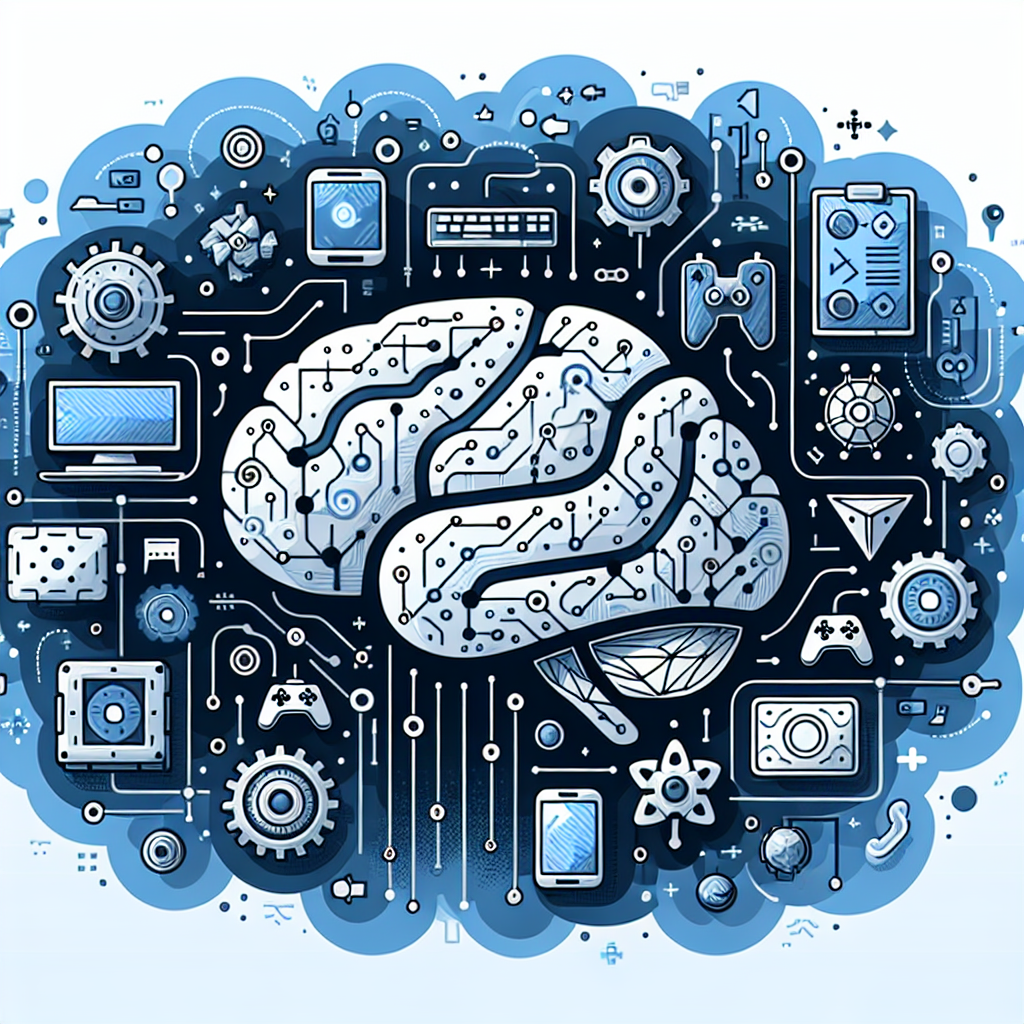Artificial Intelligence (AI) has revolutionized numerous industries, and the gaming industry is no exception. The use of AI in game production and development pipelines has significantly enhanced the quality of games, making them more immersive, interactive, and engaging for players. From improving graphics and animations to enhancing gameplay and AI-controlled characters, AI has become an essential tool for game developers.
One of the primary areas where AI is making a significant impact in game production is in graphics rendering. AI algorithms can generate realistic textures, lighting effects, and animations, creating visually stunning worlds for players to explore. By using AI-powered tools, developers can create lifelike environments with minimal effort, reducing the time and resources required to design and render complex graphics.
Another area where AI is being utilized in game development is in procedural content generation. AI algorithms can automatically generate levels, characters, and game assets, saving developers time and effort in designing and creating content. This not only speeds up the game development process but also allows for more dynamic and varied gameplay experiences for players.
AI is also being used to improve gameplay mechanics and AI-controlled characters. By analyzing player behavior and feedback, AI algorithms can adapt and learn from player interactions, creating more challenging and engaging gameplay experiences. AI-controlled characters can also be programmed to learn and evolve over time, providing a more realistic and immersive gaming experience for players.
Furthermore, AI is being used to enhance player experiences through personalized content recommendations and adaptive difficulty levels. By analyzing player data and preferences, AI algorithms can recommend games, levels, or challenges that are tailored to each player’s interests and skill level. This not only improves player engagement but also helps to retain players and increase player satisfaction.
In addition to enhancing game production and development pipelines, AI is also being used in other aspects of the gaming industry, such as player behavior analysis, fraud detection, and marketing strategies. By analyzing player data and feedback, AI algorithms can help developers understand player preferences and behavior, allowing them to create games that are better suited to their target audience. AI can also help detect and prevent fraudulent activities, such as cheating or hacking, ensuring a fair and secure gaming environment for all players.
Despite the numerous benefits of using AI in game production and development pipelines, there are also some challenges and limitations to consider. One of the main challenges is the complexity and cost of implementing AI algorithms in game development pipelines. Developing and training AI models require specialized knowledge and resources, which can be costly and time-consuming for smaller game development studios.
Another challenge is ensuring the ethical and responsible use of AI in gaming. AI algorithms can unintentionally perpetuate biases or stereotypes, leading to potentially harmful or discriminatory outcomes. It is essential for game developers to be mindful of these issues and to implement safeguards and checks to prevent any negative consequences of using AI in game development.
Despite these challenges, the use of AI in game production and development pipelines is expected to continue to grow in the coming years. As AI technology advances and becomes more accessible, game developers will have access to powerful tools and resources to create innovative and immersive gaming experiences for players.
FAQs:
1. How is AI used in graphics rendering in game production?
AI is used in graphics rendering to generate realistic textures, lighting effects, and animations, creating visually stunning worlds for players to explore. AI algorithms can automate the process of designing and rendering complex graphics, saving time and resources for developers.
2. How does AI help in procedural content generation in game development?
AI algorithms can automatically generate levels, characters, and game assets, saving developers time and effort in designing and creating content. This allows for more dynamic and varied gameplay experiences for players, as AI can create new and unique content on the fly.
3. How does AI enhance gameplay mechanics and AI-controlled characters in games?
AI algorithms can analyze player behavior and feedback, adapting and learning from player interactions to create more challenging and engaging gameplay experiences. AI-controlled characters can also evolve and learn over time, providing a more realistic and immersive gaming experience for players.
4. How does AI improve player experiences through personalized content recommendations?
AI algorithms can analyze player data and preferences to recommend games, levels, or challenges that are tailored to each player’s interests and skill level. This improves player engagement and satisfaction, as players receive personalized recommendations that match their preferences.
5. What are some challenges and limitations of using AI in game production and development?
Some challenges of using AI in game production include the complexity and cost of implementing AI algorithms, as well as ethical considerations regarding biases and stereotypes in AI-driven content. Developers must be mindful of these issues and implement safeguards to ensure responsible and ethical use of AI in gaming.

